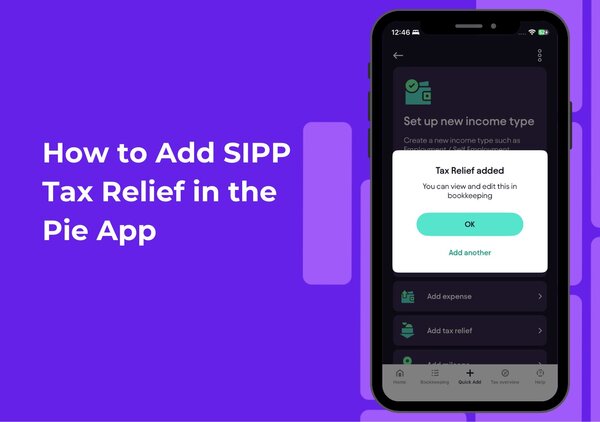So, Basically….
Your child's just turned 16 and you're panicking about losing your Child Tax Credits? Here's some good news - if they're staying in education, your payments can continue until they're 20. But there's a catch.
You absolutely must tell HMRC about this continuation, and there are specific deadlines and processes to follow. Miss these, and your payments will stop regardless of your child's education status.
I've seen families lose months of payments simply because they didn't know how to report this properly, so let me walk you through exactly what you need to do.
How Do I Tell Tax Credits My Child Is Staying in Education? The Process Explained
When you need to tell Tax Credits that your child is continuing education, you're essentially updating HMRC about a change in circumstances that keeps your entitlement going. Without this notification, your Child Tax Credits automatically stop when your child turns 16.
The process involves contacting HMRC directly with specific information about your child's course, institution, and study hours. It's not complicated, but it is crucial to get the timing right.
I learned this the hard way when my nephew started college. His mum assumed HMRC would automatically know he was continuing education - they don't! She had to backdate everything and fight for payments she'd missed.
You can report this change online through your Government Gateway account, by phone, or occasionally by post. The online method is usually fastest and gives you an immediate reference number for your records.

When You Need to Report Education Continuation
Timing is absolutely critical here. You should report your child's education continuation before their 16th birthday if possible, but definitely no later than 31st August following their 16th birthday.
Key reporting deadlines:
- Best practice: Report before your child turns 16
- Latest deadline: 31st August after they turn 16
- Course start date must be confirmed
- Any delays in starting should be reported immediately
I always advise parents to report as soon as they know their child's staying in education, even if the course hasn't started yet. You can provide provisional details and update them later if needed.
Missing the 31st August deadline doesn't necessarily mean you lose entitlement forever, but it does mean your payments will stop and you'll need to make a new claim or appeal the decision.
What Information HMRC Needs About the Education
HMRC wants specific details about your child's course to confirm it qualifies for extended Child Tax Credits. Not all education counts - it needs to be approved education that meets their criteria.
Essential information to provide:
- Your child's full name and National Insurance number (if they have one)
- Name and address of the educational institution
- Course title and level (A-levels, BTEC, etc.)
- Start date and expected end date
- Number of study hours per week
- Whether it's full-time or part-time education
The course must be at least 12 hours per week to qualify as full-time education for Child Tax Credits purposes. This catches out some families whose children are doing part-time college courses alongside work.

Approved Education: What Actually Qualifies
This is where families often get confused. Not every course your child starts will extend your Child Tax Credits entitlement. The education must be "approved" according to HMRC's criteria.
Courses that definitely qualify:
- A-levels at school or college
- BTECs and other vocational qualifications
- Access to Higher Education courses
- University degrees (if they're under 20)
- Apprenticeships with substantial education elements
- NVQs at Level 3 and above
What might not qualify:
- Part-time courses under 12 hours per week
- Evening classes or hobby courses
- Work-based training without formal education
- Courses that aren't recognised qualifications
I've seen parents assume their teenager's weekend art course would extend their credits - it won't. The course needs to be substantial and lead to recognised qualifications.
Reporting Methods: Online, Phone, and Post
The easiest way to report education continuation is through your Government Gateway account on GOV.UK. You'll find the option under "Manage your tax credits" where you can update your circumstances.
Online reporting (recommended): Log into your Government Gateway account, select "Child Tax Credits," then "Report a change." Choose "Child starting education or training" and follow the prompts. You'll get an immediate confirmation reference.
Phone reporting: Call the Tax Credits Helpline on 0345 300 3900. Have your reference number ready along with all the course details. Phone lines are typically quieter early morning or late afternoon.
Post reporting: Only use this if you can't access online services. Write to HMRC Tax Credits Office with all the details and send recorded delivery. This method takes longest and provides least security.
I always recommend the online method because you get instant confirmation and can track the update progress.

Required Documentation and Evidence
HMRC usually accepts your initial report without demanding immediate proof, but they might ask for evidence later. It's worth gathering this documentation when you first report the change.
Useful documents to have ready:
- College or school enrollment letter
- Course timetable showing hours per week
- Student ID card or enrollment confirmation
- Prospectus or course information
- Any correspondence from the educational institution
Don't wait for HMRC to ask for evidence before gathering it. Having everything ready speeds up the process and prevents delays that could affect your payments.
Some colleges automatically provide letters for benefit purposes - ask the admissions or student services team. They deal with this regularly and know exactly what HMRC needs to see.
What Happens After You Report the Change
Once you've reported your child's education continuation, HMRC updates your Child Tax Credits accordingly. Your payments should continue without interruption if you've reported on time.
You'll typically receive written confirmation within 2-4 weeks confirming the change has been processed. This letter is important - keep it safe as proof that you've properly notified HMRC.
If your child's course details change (different start date, course level, or institution), you must report these updates too. Educational plans often shift over summer, and each change needs reporting.
Processing timeline:
- Online reports: Usually processed within 5-7 working days
- Phone reports: 1-2 weeks for processing
- Posted reports: 3-4 weeks minimum
For complete details on how much your Child Tax Credits could be worth while your child continues education, our detailed guide covers all the current payment rates and calculations.

Common Mistakes When Reporting Education Changes
The biggest mistake I see is parents assuming HMRC will automatically know their child's staying in education. They absolutely won't - you must tell them explicitly, even if your child's staying at the same school for A-levels.
Another error is reporting too late. Some parents wait until after the summer holidays when courses actually start. By then, you might have missed deadlines and payments could have stopped.
Mistakes to avoid:
- Assuming HMRC knows about education continuation automatically
- Waiting until after course start dates to report
- Providing incomplete course information
- Not updating when course details change
- Forgetting to report if your child switches courses
I once worked with a family who lost three months of payments because they assumed changing from GCSEs to A-levels at the same school didn't need reporting. It absolutely does!
When Your Child Changes Courses or Institutions
Course changes are common, especially in the first few weeks of term. If your child switches courses, changes institutions, or drops out, you must report these changes immediately.
Scenarios requiring immediate reporting:
- Changing from A-levels to a BTEC course
- Moving from college to university
- Dropping out or being excluded
- Reducing hours below the 12-hour minimum
- Taking a gap year or deferring studies
Each change affects your entitlement differently. Switching between approved courses usually means no interruption to payments, but dropping out stops your Child Tax Credits immediately.
Don't wait to see if course changes are permanent. Report first, then update again if your child goes back to education later.

University Applications and Timing Issues
University applications create interesting timing challenges. Your child might be 17 when they apply but 18 or 19 when they start. The age when they begin the course determines whether Child Tax Credits continue.
If your child starts university before their 20th birthday, your Child Tax Credits can continue throughout their degree. Start after 20, and your entitlement ends.
University timing considerations:
- Application age doesn't matter - start date does
- Gap years can complicate timing
- Deferred entries need careful planning
- Course length doesn't affect the age 20 cut-off
This is particularly relevant for children who start school young or skip year groups. They might finish A-levels at 17 but not start university until 19, keeping your Child Tax Credits going longer than expected.
What Happens If You Don't Report On Time
Failing to report education continuation on time doesn't necessarily end your Child Tax Credits forever, but it does create complications you'd rather avoid.
Consequences of late reporting:
- Payments stop automatically when your child turns 16
- You'll need to make a new claim or appeal
- Might face delays getting payments restarted
- Could lose months of entitlement while sorting it out
HMRC sometimes accepts late reports if you have reasonable excuse, but "I forgot" or "I didn't know" usually aren't considered reasonable. Medical emergencies, family crises, or postal problems might be accepted.
The appeals process exists but takes time and energy you probably don't have. It's much easier to report on time than fight for reinstatement later.

Final Thoughts
Telling Tax Credits that your child is staying in education is straightforward once you know the process, but the timing and details matter enormously. Don't let simple administrative oversights cost your family thousands of pounds.
Report early, keep records of everything, and update HMRC whenever course details change. Managing these benefit notifications alongside your other tax responsibilities doesn't have to be overwhelming - our free self-assessment app helps families stay on top of all their financial obligations effortlessly.











